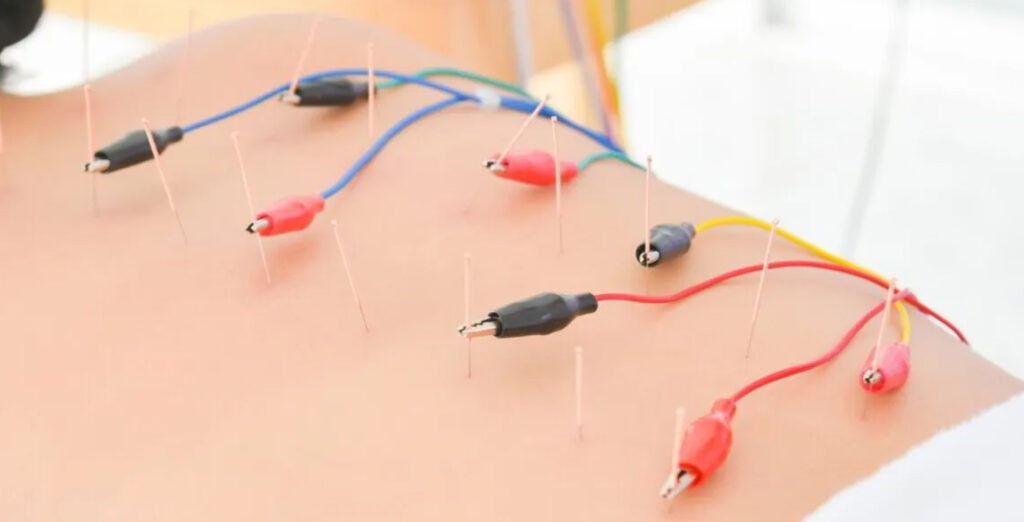Reduce Depression
 In recent years, alternative therapies have gained considerable attention as adjuncts or alternatives to conventional treatments for various mental health conditions. Among these, electroacupuncture has emerged as a promising approach to managing depression. This article explores how electroacupuncture may help reduce symptoms of depression, its mechanisms, and the current state of research in this area.
In recent years, alternative therapies have gained considerable attention as adjuncts or alternatives to conventional treatments for various mental health conditions. Among these, electroacupuncture has emerged as a promising approach to managing depression. This article explores how electroacupuncture may help reduce symptoms of depression, its mechanisms, and the current state of research in this area.
What is Electroacupuncture?
Electroacupuncture is a modified form of traditional acupuncture that involves applying electrical currents to acupuncture needles inserted into specific points on the body. Traditional acupuncture is based on the principles of Traditional Chinese Medicine (TCM), which posits that health is maintained by the balanced flow of “qi” (vital energy) through pathways called meridians. Electroacupuncture enhances this practice by using electrical stimulation, which is believed to strengthen the effects of acupuncture.
 Mechanisms of Action
Mechanisms of Action
- Neurotransmitter Regulation: Electroacupuncture may influence the balance of neurotransmitters in the brain, such as serotonin and norepinephrine, which are known to be involved in mood regulation. By stimulating specific acupuncture points, electroacupuncture may help to increase the levels of these neurotransmitters, potentially alleviating symptoms of depression.
- Endorphin Release: The electrical stimulation provided by electroacupuncture can trigger the release of endorphins, which are natural painkillers and mood enhancers. This release may contribute to an improved sense of well-being and a reduction in depressive symptoms.
- Inflammation Reduction: Some research suggests that depression may be linked to increased levels of inflammation in the body. Electroacupuncture might help to reduce inflammation by modulating the immune system, thereby potentially alleviating depressive symptoms associated with inflammatory responses.
- Regulation of the Hypothalamic-Pituitary-Adrenal Axis: This axis is a key component of the body’s stress response system. Electroacupuncture may help to regulate the activity of the hypothalamic-pituitary-adrenal axis, leading to a more balanced stress response and potentially reducing depressive symptoms.
Research and Evidence
Several studies have investigated the efficacy of electroacupuncture in treating depression. A review of clinical trials indicates that electroacupuncture may be effective in reducing depressive symptoms, with some studies showing comparable results to conventional antidepressant treatments.
- Clinical Trials: Clinical trials have demonstrated that electroacupuncture can lead to significant improvements in depression scores, with effects potentially lasting beyond the treatment period. These trials often compare electroacupuncture with sham acupuncture or standard antidepressant therapies to assess its effectiveness.
- Meta-Analyses: Meta-analyses of multiple studies have suggested that electroacupuncture has a moderate effect on reducing depression symptoms. However, the quality of the studies varies, and further research with larger sample sizes and more rigorous methodologies is needed to confirm these findings.
- Safety and Tolerability: Electroacupuncture is generally well-tolerated, with few adverse effects reported. It is considered a safe treatment option, particularly for individuals who may not respond well to or prefer to avoid traditional antidepressant medications.
Considerations and Future Directions
While the evidence supporting electroacupuncture as a treatment for depression is promising, it is essential to approach it as a complementary therapy rather than a standalone treatment. Patients should work closely with their healthcare providers to determine the best course of action for their specific needs.
Future research should focus on understanding the precise mechanisms through which electroacupuncture affects depression, optimizing treatment protocols, and exploring its long-term effects. Large-scale, high-quality studies will be crucial in establishing the role of electroacupuncture in the broader context of depression management.
Electroacupuncture Offers an Intriguing Alternative for Those Seeking to Manage Depression
By potentially influencing neurotransmitter levels, reducing inflammation, and promoting overall well-being, it may serve as a valuable adjunct to traditional treatments. As research continues to evolve, electroacupuncture could play an increasingly significant role in the holistic approach to mental health care.
Contact Urban Acupuncture Center in Columbus, OH For More Information
For more information about how acupuncture, massage therapy and other alternative healing treatments can help you, please contact the Urban Acupuncture Center Board Certified Licensed Acupuncturist’s team at Indianola Ave, Columbus, Ohio (Clintonville) (614) 725-2488 or click here. Taking new patients in and around greater Columbus, Ohio.
